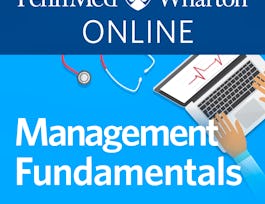This course explores the concept of energy efficiency and sustainability in building design, covering topics such as forms of energy, strategies for energy efficiency, and the role of renewable energy and water management. The module emphasizes the importance of certified fixtures and rainwater harvesting for water efficiency. It also discusses waste management, including types of waste, treatment methods, and strategies for different building purposes. The focus then shifts to the environmental footprint of buildings, specifically addressing construction and demolition (C&D) waste. The module on C&D waste management explores sustainable practices, including composition, measurement, processing techniques, and regulations. It advocates for a circular economy approach to enhance resource efficiency and minimize environmental impact, concluding with case studies showcasing sustainable C&D waste management within the construction industry.



Resource and Waste Management in Buildings
This course is part of Sustainable Design Practices in Building Design Specialization

Instructor: Subject Matter Expert
Sponsored by Coursera for Reliance Family
1,938 already enrolled
Recommended experience
Recommended experience
What you'll learn
Understand the features of Energy Conservation Building Code (ECBC) and implement energy efficient strategies in HVAC and Lighting system
Understand the concepts of waste water treatment and usage, rainwater harvesting and provide strategies for achieving water efficiency in buildings
Develop waste management plan for buildings by understanding waste treatment methodologies and resource recovery
Skills you'll gain
- Structural Engineering
- Maintenance, Repair, and Facility Services
- Architectural Design
- Construction Engineering
- Civil and Architectural Engineering
- Natural Resource Management
- Water Resources
- Architectural Engineering
- Cleanliness
- Engineering
- Sanitation
- Waste Minimization
- Mechanical Engineering
- Environmental Resource Management
- Architecture and Construction
- Environment and Resource Management
- Building Services Engineering
- Civil Engineering
- HVAC
- Plumbing
Details to know

Add to your LinkedIn profile
4 assignments
See how employees at top companies are mastering in-demand skills

Build your subject-matter expertise
- Learn new concepts from industry experts
- Gain a foundational understanding of a subject or tool
- Develop job-relevant skills with hands-on projects
- Earn a shareable career certificate


Earn a career certificate
Add this credential to your LinkedIn profile, resume, or CV
Share it on social media and in your performance review

There are 4 modules in this course
Energy efficiency, the practice of accomplishing tasks with reduced energy consumption for the same outcomes, emerges as a key focus in this module, particularly in the context of building structures. Beginning with a comprehensive exploration of the nature of energy and its diverse forms within buildings, the discourse transitions into methods for optimizing energy efficiency within these structures. Emphasis is placed on the pivotal role of building energy simulation and the crucial features outlined in the Energy Conservation Building Code (ECBC). The module also illuminates strategies for enhancing energy efficiency in Heating, Ventilation, and Air Conditioning (HVAC) systems and lighting, supported by illustrative examples. Additionally, the module underscores the significance of integrating renewable energy sources, implementing energy management systems, and the procedural insights into conducting an effective energy audit within building environments.
What's included
7 videos5 readings1 assignment
Water efficiency entails minimizing water consumption in various activities without compromising comfort or functionality. This module focuses on the planning and design of water management systems for buildings. The module encompasses strategies to reduce water usage through the adoption of certified water-efficient fixtures following the Uniform Illustrated Plumbing Code of India. Additionally, the module delves into the detailed exploration of rainwater harvesting as a vital measure to address water crises. The significance of water metering, its types, and contemporary trends are elucidated. The final segment covers the treatment of wastewater, the reuse of treated water, and achieving water efficiency in landscaping through the implementation of effective irrigation techniques.
What's included
4 videos2 readings1 assignment
The module commences with the concept of an environmental footprint and its implications on the global environment due to generated waste. This waste management module provides valuable insights into the generation of waste in buildings, its treatment, and secure disposal. Initially, we examine the diverse types of waste and various treatment methodologies, including processes such as converting waste into energy and resource recovery. Given that the nature of generated waste varies depending on the building's purpose, our focus extends to waste management strategies tailored for healthcare facilities and mixed-use residential and commercial buildings. The comprehensive waste management approach encompasses the identification of waste types, segregation practices, in-house transportation systems, storage methods, treatment processes, reuse initiatives, and proper disposal methods.
What's included
5 videos3 readings1 assignment
Construction and Demolition (C&D) waste involves a diverse array of materials arising from construction activities, such as concrete, wood, metals, and others, which must be handled separately. This module on construction and demolition waste management offers a perspective on sustainable practices for handling C&D waste. It will cover the composition, measurement, processing techniques, and regulations associated with C&D waste management. The module will emphasize the adoption of a circular economy approach to enhance resource efficiency and minimize environmental repercussions. Additionally, we will explore case studies showcasing C&D waste management strategies that promote sustainable practices within the construction industry.
What's included
8 videos1 assignment
Instructor

Offered by
Why people choose Coursera for their career




Recommended if you're interested in Physical Science and Engineering


Dartmouth College


University of Pennsylvania


L&T EduTech


Lund University

Open new doors with Coursera Plus
Unlimited access to 10,000+ world-class courses, hands-on projects, and job-ready certificate programs - all included in your subscription
Advance your career with an online degree
Earn a degree from world-class universities - 100% online
Join over 3,400 global companies that choose Coursera for Business
Upskill your employees to excel in the digital economy



